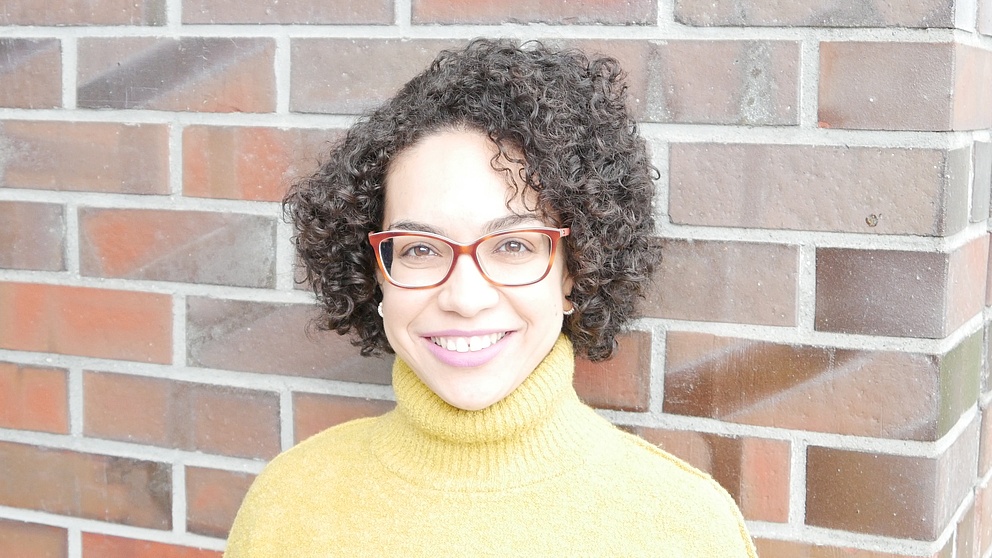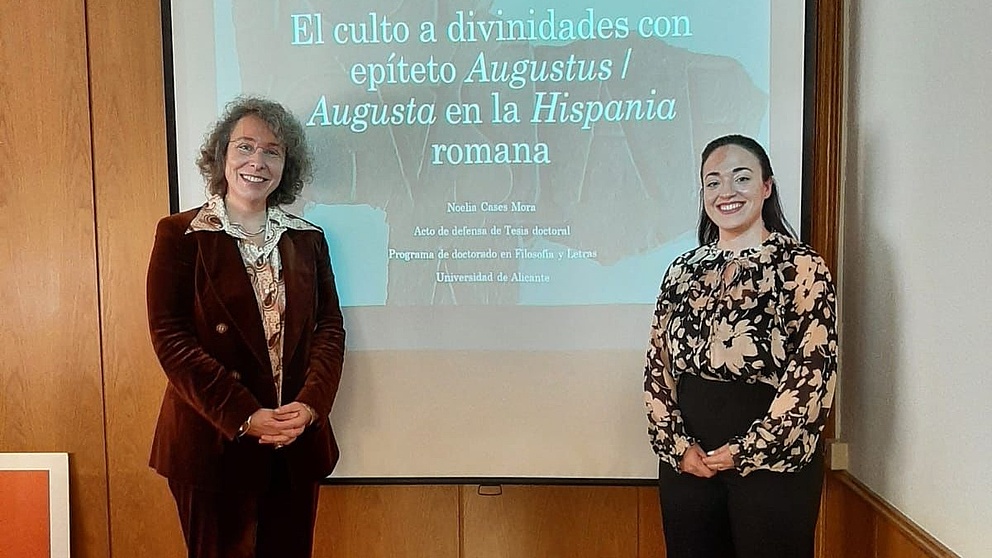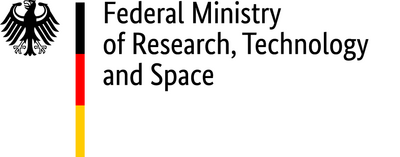Jump to the content
- {{#headlines}}
- {{title}} {{/headlines}}
Seeking networkers!
Become a scout and recruit a Humboldt Research Fellow for your team and the Humboldt Network!
Have you long since made a name for yourself in your discipline? Or are you at the beginning of a promising executive research career? Are you also well-connected internationally and have already mentored junior researchers? Then the Henriette Herz Scouting Programme could be the right one for you. We specifically want to recruit researchers as scouts who already have their own international network and would like to expand their team to include an excellent Humboldt Research Fellow. Two programme lines invite applications from both up-and-coming academics, who are (junior) professors or group leaders, as well as established researchers. We particularly welcome applications from individuals who have not been connected with the Humboldt Foundation to date.
If you are selected as a scout, you have the opportunity to recommend three research talents from abroad for a Humboldt Research Fellowship. After formal approval, the fellowships will be granted directly.
We want to extend our network and make it more diverse. You should therefore set your sights on junior researchers who have not previously been considered for an application to the Humboldt Foundation or a research stay in Germany. Moreover, the first person you recommend should be a female researcher.
We generally welcome all nominations regardless of ethnic, cultural or social background, gender identity, age, religion, wordview, disability or sexual orientation.
The assessment also considers the individual life journey and educational background, also and especially in terms of equal opportunities and accessibility.
- Programme Information (PDF, 75 KB)
- Guidelines on the recommendation procedure (PDF, 81 KB)
- Guidelines on the ex-post evaluation (PDF, 111 KB)
- Recently selected scouts (May 2025) (PDF, 74 KB)
- Information for references
- Information for independent peer reviewers
- Individual advice: scouting[at]avh.de
- Virtual information event
1. Selection of scouts
With your knowledge, connections and commitment you can scout particularly gifted scientific talents for Germany and your own institute.
The Henriette Herz Scouting Programme addresses researchers at different career stages in all disciplines in Germany. The requirement for becoming a scout is that you hold a (junior) professorship or equivalent executive position (e.g. group leader) in Germany.
Scouts will be selected according to the following criteria:
- Visible academic success: you can substantiate your internationally recognised academic record, commensurate with your career level, by (initial) awards, outstanding publications, particularly innovative research or by approved research proposals
- Successful promotion of junior researchers’ careers, for example by supervising doctorates or collaborating with postdocs in your own group
- International connections: your extensive international collaborative network holds the potential to scout international research talents
- Convincing concept: your concept indicates how you would like to use the programme to specifically recruit foreign researchers who do not apply to the Foundation themselves
You can submit an online application to become a scout on this website at any time.
Two programme lines are available for:
- Up-and-coming researchers at an early career stage (within 15 years of completing your doctorate)
- Established researchers
Please submit the following additional documents:
- A list of three selected key publications which substantiate your particularly innovative and excellent research
- A concept for identifying, selecting and hosting international junior researchers who would not themselves apply for a Humboldt Research Fellowship (approx. 1–2 pages)
- Two references: one from an international collaborative partner and one from a junior researcher you have supervised
- Your CV (2 pages max)
In your concept, please outline in particular:
- How you intend to identify people who fit the programme’s target group
- The (innovative) methods you want to use to recruit qualified researchers for your group, and how these differ from previous efforts
- How you will go about recruiting suitable female researchers. Please indicate how many of your permissions to recommend candidates would refer to women. If applicable, please add which other aspects of diversity you would like to include.
- The role your own international network and your collaborations will play in the scouting campaign
- How you will organise the junior researcher’s integration and mentoring
Once your application documents have been checked, they will be forwarded to two independent peer reviewers who will provide written reviews based on the aforementioned selection criteria. An independent selection committee composed of researchers from all disciplines will select the best applications based on the peer reviews. The two programme lines will be discussed and decided upon separately in two groups. The selection committee meets twice a year, at the end of May and the end of November. Approximately 30% of applications are currently successful.
2. Granting of Humboldt Research Fellowships on recommendation of the scout
As a scout in the Henriette Herz Scouting Programme, you will identify excellent junior researchers abroad. Your focus should be on researchers whose academic record qualifies them to be granted a Humboldt Research Fellowship but who have not yet taken part in the application process. This may be because many research talents have already secured a permanent job or lucrative offers from business or academia at an early stage in their careers, or simply do not have any contacts in Germany.
The Humboldt Foundation is keen to increase diversity in the Humboldt Research Fellowship Programme, both in terms of subject and region; we also want to boost the percentage of women amongst our fellowship-recipients. Your first recommendation should, therefore, be for a female researcher.
Every year, we want to grant up to 100 additional research fellowships in this way.
The candidates you recommend must fulfil the following requirements:
- Doctorate completed within the last 12 years
- Above-average publication record, commensurate with career level
- Have not undertaken post-doctoral research stays nor completed degrees/doctorates in Germany
- Not hold German nationality
- Language skills: good knowledge of German or English, depending on research proposal
- Availability: the research fellowship should commence within 12 months of being granted
- No previous applications submitted to the Foundation by the candidate; no previous sponsorship in any of the Foundation’s fellowship programmes
For detailed information, visit our Guidelines on the Recommendation Procedure.
Your right to make recommendations is subject to deadlines. You will find more information in the Guidelines on the Recommendation Procedure. Furthermore, when you have been selected as a scout, we will invite you to an information event.
3. Ex-post evaluation of the research fellows sponsored
Was the sponsorship you initiated a success? When participating in the Henriette Herz Scouting Programme you and your research fellow will be expected to take part in an ex-post evaluation. The purpose of this procedure is to review the performance and results of the junior researchers sponsored in a peer-review process and facilitate comparability.
Approximately a year after finishing the fellowship, we will ask independent peer reviewers to evaluate the results of the sponsorship based on your fellows’ reports and your own assessment. Their evaluations will then be forwarded to the selection committee. If the outcome is positive you can re-apply for further permissions to scout fellows. For additional information visit the Guidelines on Ex-post Evaluation (PDF).
Programme timeframe
- Applicants
- Foundation
- Notification
| Scout selection procedure | Active scouting phase | Completion of scouting phase | Re-application as scout optional |
|---|---|---|---|
|
|
|
|
Questions & Answers
The Humboldt Foundation underscores that applications from individuals who have not previously acted as hosts for the Humboldt Foundation are especially welcome. An applicaton is thus, if the other prerequisites are met, possible.
No, in order to apply, the applicant must hold an executive academic position at a German university or research institution at the time of applying.
Yes, applicants that hold an executive academic position at a German university or research institution at the time of applying may apply. The applicant’s nationality is not relevant in this case.
No, is it not possible to apply to several programmes of the Humboldt Foundation concurrently.
Yes, if you hold an executive academic position at a German university or research institution at the time of applying and meet the other prerequisites.
An application is possible as soon as you hold an executive academic position at a German university or research institution at the time of applying. This includes e.g. a junior group leadership or a junior professorship, even when they are still temporary. Any change in position should be actively communicated in order to include such information during the selection process.
Additionally, you may only act as a scout while holding an executive academic position at a German university or research institution and can offer to make research facilities available.
Applicants are formally required to hold an executive position at a German university or research institution; such positions generally include the right to confer doctorates. Successful scouts will usually already have supervised doctorates independently until graduation or conducted independent research with postdoctoral students. We therefore recommend that you do not apply until you have some (initial) experience, as this will improve your chances of being selected.
Currently, around 30% of applications are successful. Frequent reasons that have led to rejections in the past include the following:
- The concept contains no unique elements in terms of how the applicant intends to explore new ways of recruiting postdocs through the Henriette Herz Scouting Programme
- Measures to increase diversity within the discipline are not sufficiently specific and/or not very promising
- The applicant has no prior experience in supervising junior researchers
- The programme’s strategic added value compared to other available funding opportunities for postdocs is not clearly outlined
There is no closing date for submitting your application. Applications are processed as part of an ongoing procedure. As soon as we receive your complete application, it will be forwarded to independent peer reviewers and, upon submission of the written peer review, a decision will be made at the next meeting of the Selection Committee. Please note that your application can only be submitted after your references have uploaded all the necessary documents. The date used to determine whether the applicant meets certain formal requirements, such as those relating to a permanent stay in Germany, is the date on which the Humboldt Foundation receives the respective application. Selection committee meetings take place twice a year – once in May and once in November. Applications should be submitted at least six to eight months ahead of the prospective selection meeting.
The concept is an integral part of the selection documents and will be uploaded with the application in the online portal. It should be comprised of about 2 pages. Points discussed in your concept should include:
- How you intend to identify people who fit the programme’s target group
- (Innovative) methods to recruit qualified resarchers for the team and how these, if so, differ from the methods applied in the past
- Plans to specifically identify and recruit female researchers, and targets for how many of the requested recommendation entitlements are to be awarded to women
- The role your own international networks and research cooperations will play in identifying and recruiting suitable candidates
- Planning for the involvement and support of junior researchers.
You must submit two reference letters: One reference from an international cooperation partner and one reference from a supervised junior researcher. The reference letter from a junior researcher shall be provided by a person, who is, at the time of the application, no longer supervised by the applicant (e.g. as a PhD student or employee). The person providing the reference should be in a position to answer the questions in the respective questionnaire.
We will inform you about the Selection Committee’s decision via email in the days following the meeting.
There is no standard duration for scouting activities; it depends on the granted permissions to recommend fellows and when they are used. Scouts can identify up to three potential research fellows abroad and recommend them for a Humboldt Research Fellowship. Ideally, scouts will use their permission to recommend a fellow once a year; the corresponding deadlines can be found in the Guidelines on the Recommendation Procedure. In agreement with the Foundation, flexibility is possible. The appointment as a scout ends when the final research fellow’s fellowship and the respective ex-post evaluation have been completed. Another application for further permissions to recommend fellows may then be submitted.
The concept is the basis for a scout’s subsequent efforts to recruit junior researchers, and is heavily weighted in the selection process because the programme receives applications from many excellent candidates. Selected scouts are therefore expected to implement the described measures and objectives in their specific recommendations for postdocs; they may deviate from the concept in exceptional circumstances by prior arrangement with the Foundation.
Documents are usually reviewed within two weeks and the grant documents are then issued within a further two weeks. When planning a research stay in Germany or the beginning of sponsorship, researchers from countries subject to visa requirements must take into account the duration of the respective visa process.
Who was Henriette Herz?

Henriette Julie Herz (* 5 September 1764 in Berlin; † 22 October 1847 in Berlin), Writer and host of first literary salon in Berlin
Together with her husband, Henriette Herz organised discussion groups on scientific and philosophical topics.
The participants, including the von Humboldt brothers, came from various strata of society. Henriette Herz stands for emancipation, networking and exchange as well as for the promotion of talents. She and Alexander von Humboldt shared a life-long friendship.
Henriette Herz, née de Lemos, was born into a patrician family on 5 September 1764. Her father was a doctor and director of the Jewish Hospital in Berlin. Quite untypically for the time, he allowed his knowledge-hungry daughter to acquire a comprehensive education. From 1785, she held Prussia’s first literary salon, inspiring many women to establish salons of their own.






